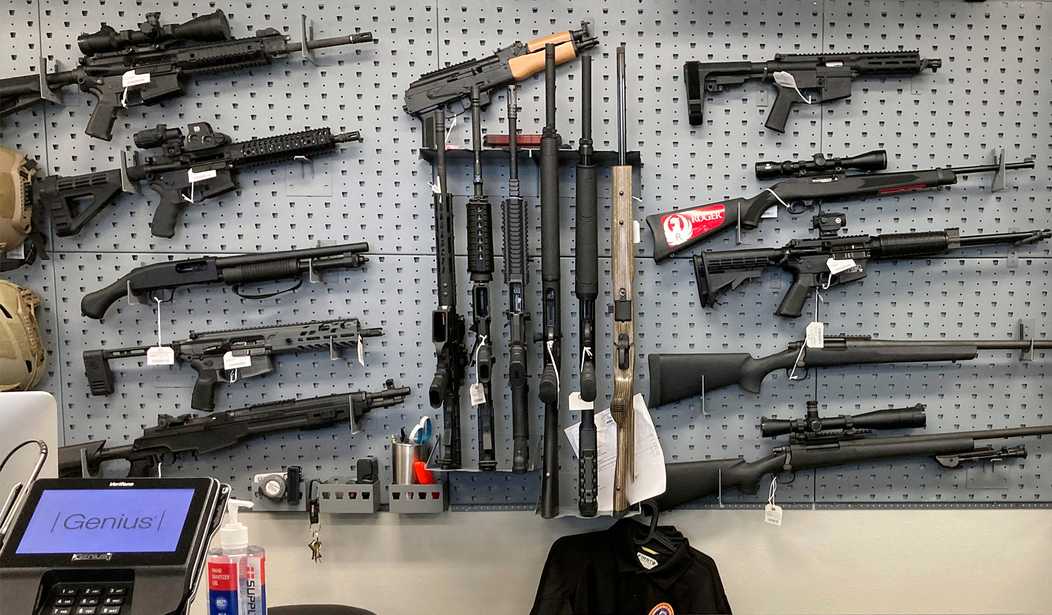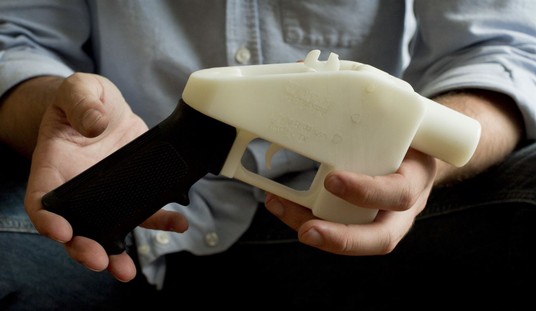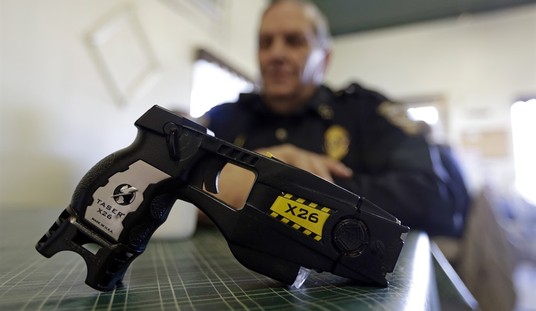The Bipartisan Safer Communities Act was never a good idea. We've already seen how some of the measures have been adapted by the Biden administration to do things that outrage some of the people who backed it and gave them justification to call it "bipartisan."
That's on them.
One of the measures contained in the bill was a requirement for "enhanced" background checks. Basically, someone age 18 to 21 who wants to buy a gun may be subject to greater scrutiny than someone who is 50, with juvenile records and others being scoured. It gives them up to 10 days to complete the search, meaning that while I might be able to pick a gun up after three days even with no result on a background check, a 19-year-old wouldn't get that "luxury."
To me, it seems discriminatory. To the Fifth Circuit, however, it apparently seems like a hell of an idea.
Placing additional background check requirements and delays on 18-20-year-old gun buyers does not run afoul of the Second Amendment, a federal appeals court ruled Friday.
A three-judge panel for the Fifth Circuit Court of Appeals unanimously ruled against challengers who took issue with the “enhanced” background check provisions of the 2022 Bipartisan Safer Communities Act (BSCA). The panel found that the plaintiffs failed to show a likelihood of succeeding on the merits of their constitutional claims and declined to issue an injunction against the law.
“The [Second Amendment’s] plain text covers plaintiffs’ right ‘to keep and bear arms,'” Judge Jerry E. Smith wrote in McRorey v. Garland. “And on its face ‘keep and bear’ does not include purchase—let alone without background check. That is so in either the contemporary or the Founding-era context.”
I've heard this argument before from people, but I've also always found it absurd. We have a right to keep and bear arms, but that doesn't include obtaining arms in the first place? That's a very dangerous road to even suggest as it can be used to justify all manner of gun bans so long as they don't try to take what we already have.
"We're not banning your right to have guns, only to transfer them in any way, shape, or form."
Within a matter of years, the effect will be the exact same regardless of what you call it.
While I'm quibbling with this particular argument, the truth is that there are deeper problems with the law itself, which is why this ended up in court in the first place.
Gun-rights advocates have criticized this provision as a de facto waiting period, which they argue is unconstitutional. Gun Owners of America (GOA) sued the Biden administration over the enhanced background checks on behalf of two prospective gun buyers last May. District Judge Reed O’Connor denied the group’s motion for preliminary injunction in August, and the group appealed that decision to the Fifth Circuit.
Erich Pratt, GOA’s Senior Vice President, called the panel’s decision “incredibly frustrating.”
“If there was a ten-day waiting period to publish an article or broadcast a news story, every judge in America would be enjoining the policy!” Pratt told The Reload. “This ruling confirms the incorrect view that many judges have on the Second Amendment, that the right to keep and bear arms is a second-class right.”
Of course, Pratt is right. Completely and totally.
We wouldn't tolerate a 10-day waiting period for anyone to exercise their other rights, so why is it so acceptable to have a waiting period of any kind for gun purchases?
Unfortunately, because both Heller and Bruen essentially said that background checks are presumptively constitutional--that's where I disagree with both Justice Scalia and Justice Thomas--this law is somehow constitutional as well. At least that's what the judges on the panel ruled.
That runs counter to the argument quoted above that the right to keep and bear arms doesn't include gun purchases, but at least that has some kind of sensical foundation, even if I don't agree with it.
However, the judges also argued that one would have to show that a background check has become so onerous that it's become a de facto ban on gun possession, rather than just a waiting period.
I find that incredibly problematic because where is that line? I maintain that a right delayed is a right denied, particularly one that is a basic human right like keeping and bearing arms. I get that others don't, though, so at one point is it too onerous?
After all, judges in California or New York could argue that two or three years isn't too long to be a problem. Where is the line?
Honestly, I expected better out of the Fifth Circuit.
Now, I suspect we'll move this up the chain and see if we can get some of this stupidity overturned. Here's hoping, anyway.








Join the conversation as a VIP Member